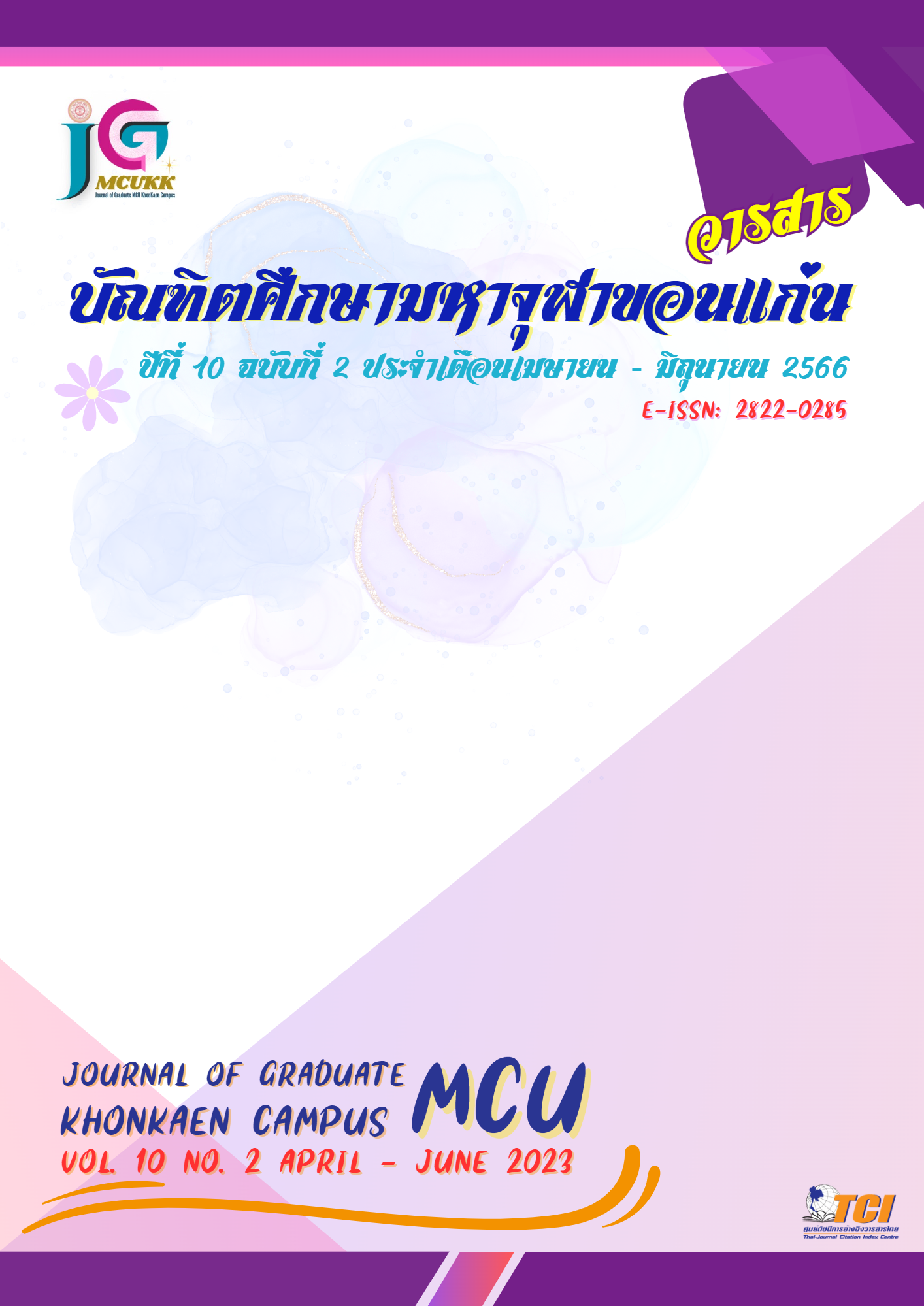A Development of English Listening and Speaking Skills Through Natural Approach for Grade 9 Students at Watsidok School, Phrae
Main Article Content
บทคัดย่อ
2) to study the satisfaction of grade 9 students on using the Natural Approach.
This research was an experimental research with the one-shot case study design. The samples were purposively selected class of 13 ninth grade students at Watsidok School, Phare Province during the second semester of the academic year 2022. The research instruments were: 1) 6 lesson plans using the Natural Approach. 2) 4 sections of the English listening and speaking assessment test and 3) the students' satisfaction questionnaire on the Natural Approach. The data were analyzed using descriptive statistics, including mean, standard deviation, and percentage.
The research results showed that 1) students' English listening and speaking skills after using the Natural Approach are at the A2 level (39.48%) of the CEFR. 2) the satisfaction of grade 9 students on the Natural Approach was at the highest level (
Article Details

อนุญาตภายใต้เงื่อนไข Creative Commons Attribution-NonCommercial-NoDerivatives 4.0 International License.
เอกสารอ้างอิง
Amiruddin, M. (2020). The Effectiveness of Natural Approach on Language Learning in Higher Education. Advances in Social Science, Education and Humanities Research, 619, 120-129. Doi: 10.2991/assehr.k.211219.023
Anchunda, H. Y., & Kaewurai, W. (2021). Instructional model development based on collaborative and communicative approaches to enhance lower secondary students’ English-speaking skills in Thailand. Kasetsart Journal of Social Sciences, 42(2), 287–292.
BBC News Thailand. (2018, November 5). Why have Thai people's English scores been so low for 8 years?. Retrieved August 12, 2022, from https://www.bbc.com/thai/thailand-46093794
Chayapon Chomchaiya, Sirinya Pipatsrisawat, and Nutthaporn Owatnupat. (2022). English Communication Development by Using Self-Directed Learning. Panyapiwat Journal, 14(1), 347-361.
Dusadee Rangseechatchawan. (2019). Developing English Instructional Model by Integrating Instructional Innovation to Promote 21st Century Skills (Researchreports). Chiang Mai: Chiang Mai Rajabhat University.
EF English Proficiency Index. (2021). The world’s largest ranking of countries and regions by English skills. Retrieved August 12, 2022, from https://www.ef.com/ca/epi/
Krashen, S. D., & Terrell, T. D. (1983). The Natural Approach: Language Acquisition in the Classroom. Oxford: Pergamon
Lestary, D. and Sani, A. (2018). The Effectiveness of Using Natural Approach to Improve Students’ Interaction Ability at The Second Grade of Sman 4 Pinrang. Inspiring: English Education Journal, 1(2), 87-102. Doi: 10.35905/inspiring.v1i2.842
National Educational Testing Service. (2022). O-NET Test Results of Grade 9 in the Academic Year 2021. Retrieved August 14, 2022, from http://www.newonetresult.niets.or.th/AnnouncementWeb/Login.aspx
Phimthip Duangjit. (2017). The Development of Listening and Speaking of Performance and Satisfaction Grade Five Students Taught Through a Computer Assisted Program Based on the Natural Approach. Prae-wa Kalasin Journal of Kalasin University, 5(2), 277-294.
Wichet Suapoomee (2020). Development of English Listening-Speaking Skills through Natural Approach for Prathomsuksa 2 Students Sahakornnikomklua School. Journal of graduate studies Bansomdejchaopraya Rajabhat University, 5(2), 51-62 .
Rao, P. S. (2019). The Role of English as a Global Language. Research Journal of English (RJOE), 4(1), 65-79.
STEVIE, D. (2022). Natural Approach to Language Learning. Retrieved January 17, 2022, from https://www.fluentu.com/blog/natural-approach-to-language-learning/

